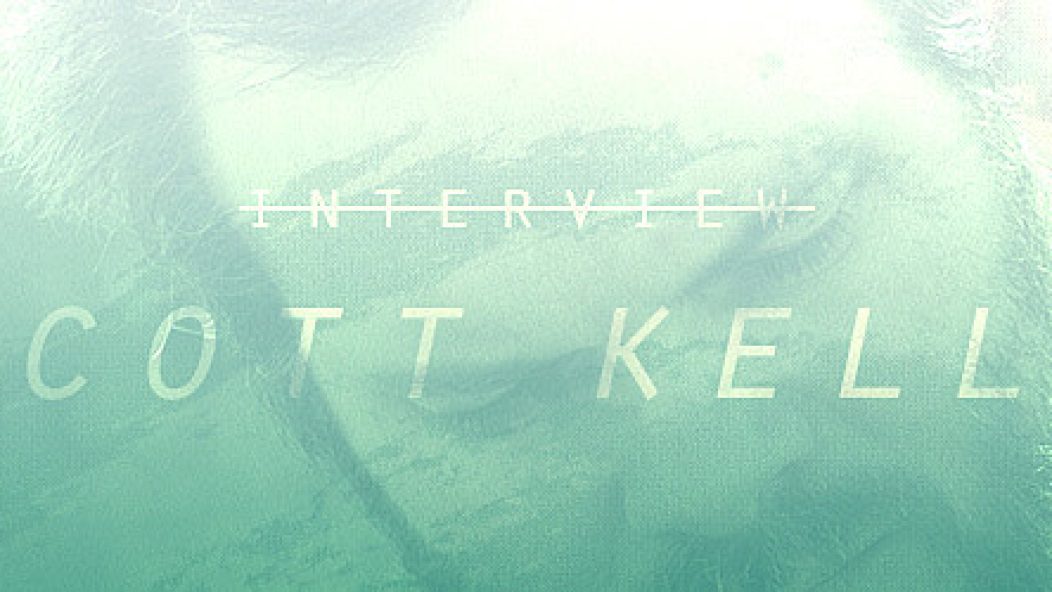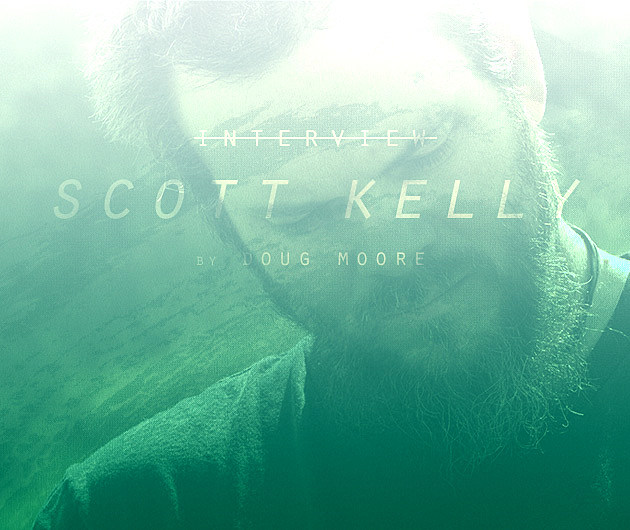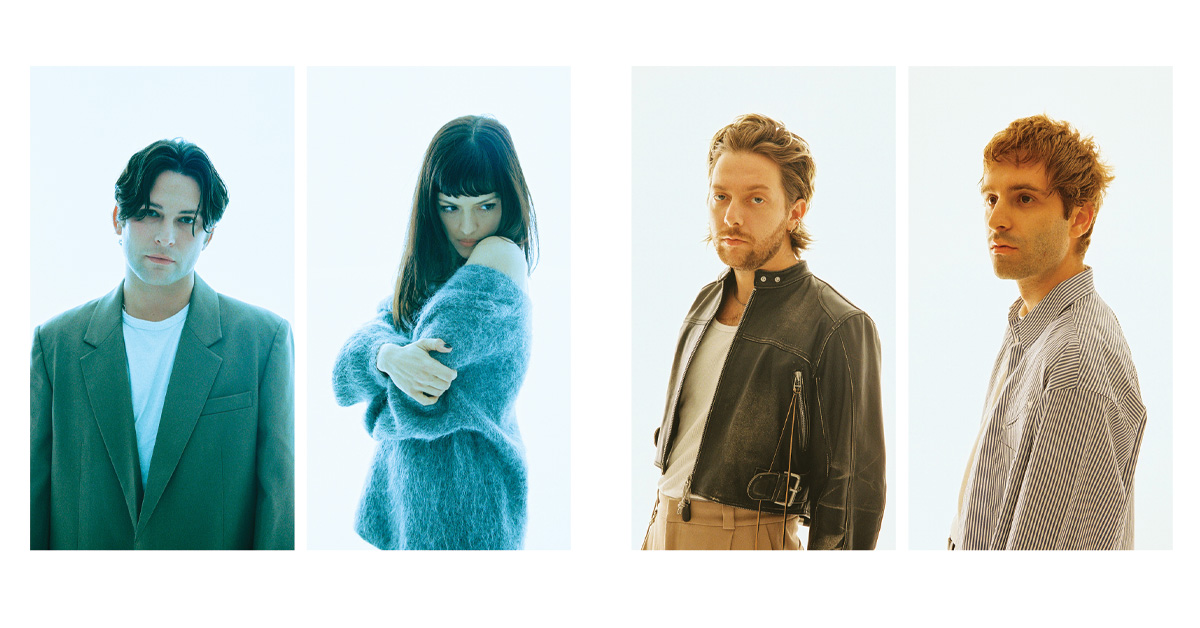
Interview: Scott Kelly

. . .
I’ve mentioned before on Invisible Oranges that Neurosis is my favorite band, and that the esteem in which I hold them makes it tough for me to write about them. That hasn’t changed.
Fortunately, Neurosis’s musicians are very capable of speaking for themselves, both literally and musically. Vocalist and guitarist Scott Kelly is a man of many tongues—the apocalyptic howl of his main band, the occult chant of Shrinebuilder, the prolonged hum of Blood and Time. Over the past 10 years, he has learned to whisper. And he’s done so with newfound eloquence on The Forgiven Ghost In Me, his upcoming third solo effort.
Kelly is a musician of great economy, and he is equally careful with his words; he pauses to consider each sentence before speaking. Even over the phone, his voice reverberates with weathered strength.
. . .
http://www.youtube.com/watch?v=xG0Qi3r28gY
Scott Kelly – “We Let The Hell Come” (live)
. . .
Your new album is more layered and lush than any of your previous records, largely thanks to Noah Landis and Greg Dale’s contributions. Why did you choose to involve them in this recording?
I just wanted to try something different. Noah and I had agreed that he would produce and engineer the record anyway. I showed the songs to him and Greg, and they started coming up with really nice parts for them. I didn’t really focus on what they were doing much at all. They wrote their own stuff. It grew naturally, which is something I really like.
I’ve been trying to figure out how to do their parts live. So far I’ve been playing the songs stripped down, with just an acoustic guitar. We want to figure out a way to do it with all of us together—maybe play a special show here and there.
Have you considered using samples to replicate their parts?
Yeah, I could do that, or bring along somebody to do that. That’s a possibility. You have to look at it from a practical standpoint for traveling. The reason it works for me to hit the road with this material is that it’s just me and a guitar and a backpack. I just have to get in a car and go from show to show. It’s very low overhead, and I don’t need a lot to survive out there.
The final track on the album is titled “We Burn Through the Night,” which is also the name of your website. The phrase also appears on a Thomas Hooper tour shirt design for your recent tour. What significance does this phrase hold for you?
To me, it’s an eternal flame image. It never goes away. It’s something that bonds people together.
When did you first become interested in country/folk music?
When I was little, through my dad. My dad liked some folk stuff, but he really liked country music more. He was a pretty right-wing guy. He never listened to Bob Dylan or anything. Country was more natural for him, I think. He was really into Buck Owens. He was into the Outlaw era.
I spin that ’70s stuff still, but I’ve gotten more into the older stuff that he wasn’t so into. I’ve found myself really getting into Hank Williams and the earlier stuff. It’s a cool sound, man. It’s got a resonant tone that works for me. I’m one of those people who associates a lot with tone. If something doesn’t have the right tone, I don’t like it at all, even if it’s just somebody talking. That simple, old country music has this dusty layer on it. The tone works for me.
You recorded your first solo album in 2001. I’ve read in other interviews that you barely played acoustic guitar before you moved away from Oakland. What moved you to start writing this kind of material?
I found myself moved by people who could write songs. It’s an amazing craft. I view Neurosis and the way we write music in a classical sense. We’re not really songwriters. We’re writing these magnum opus-type pieces.
Compositions as opposed to songs.
Yeah, that sounds good. So that being our natural state, [Neurosis bandmate] Steve [Von Till] and I found ourselves tripping on this at the same time. We felt challenged to see if we could create actual songs. When I got out of the city, I started feeling a lot of those old tunes my dad used to play for me again in my daily life. I’d go to the bar and someone would be playing them. They started to feel more ‘normal,’ and they started to seep back into me.
I’d used stuff like Hank Williams since the mid-’90s to relax me and to put me to sleep after we would play out on tour. I’d put Hank on my Walkman and just listen to song after song. It was a meditative sound that would get me through the night. When you’re on the road all the time, you start to get real paranoid about the possibilities out there. I used to just drink a lot and listen to Hank Williams, trying to knock myself out every night.
I ended up getting sober 10 or 11 years ago, which was about the same time that I started trying to write this type of song. My first album is fine, but it just feels like an acoustic Neurosis record to me for the most part. There’s not a lot I can do about that, because that’s just what I do. But I feel like this last record is the first that really incorporates a little of both. I’ve been able to develop my songwriting, and I feel like I’m comfortable doing some more droney stuff as well. It all seems to fit now.
What is your creative process for your solo material like? When and where do you write?
I write one of two ways. I write pretty much whenever I play guitar, outside of performing. I’ve always got three or four songs or riffs or progressions of riffs that I’m working on. I’ll fuck around with those and see what comes out of them.
At other times, I’ll have a song just kind of fall on me. Like “Within It Blood”—I wrote that at sound check one night in Poland and played it that night. It was so fast; I wrote the words and music on the spot. I just scribbled them down on my notepad and opened with it that night. When that happens, I never question it. I’ve had a few of those over the years. I wrote “Locust Star” in like a minute, backstage in Portland one night. The whole thing just came right to me.
That’s pretty crazy.
Yeah, it’s weird.
. . .
Neurosis – “Locust Star”
. . .
You recently recorded several songs for a tribute to the country musician Townes Van Zandt, along with your bandmates Steve Von Till (Neurosis) and Wino Weinrich (Shrinebuilder, Saint Vitus). I’ve heard a number of other metal musicians cover or express admiration for Townes Van Zandt—Dax Riggs from Acid Bath, Nate Hall from US Christmas, and Steve Brodsky of Cave In, among others. Can you explain why you were drawn to him?
I was originally exposed to Townes by Noah, probably 11 or 12 years ago. He burned me a CD of a bunch of his songs, and I was immediately drawn to his lyrics and his songwriting abilities. I think that’s the reason why so many of the people that you mentioned are drawn to him. He’s so forthright with what he’s singing about. On one hand, he can do a song like “Tecumseh Valley,” which is this incredibly raw tale of someone’s life. He can tell such a difficult story with such honor and respect. I guess ‘dignity’ would be the best word. Or he can do a song like “Spider Song.”
Townes was the greatest songwriter that’s ever lived. I don’t think anyone even touches him, honestly. There’s a lot of great songwriters, but I don’t find that anybody can beat Townes Van Zandt. He had this ability to go so deep, so fast. I regret never getting to see him. Didn’t get into him until he was gone. Of course, I knew “Pancho and Lefty”. I always loved that song. Now I wish I had clued in that it was his song, and not Merle Haggard’s song.
That seems to be the story of his career.
Yeah, it does. Shit sucks. That’s so common with music and art. And that was really the inspiration behind doing this record. My Proud Mountain Records, who got us together to do this one, is hopefully gonna do another one too. I feel like the more his songs can be exposed, the better.
You mentioned “Tecumseh Valley” earlier. The song tells the story of a young woman who is forced to turn to prostitution and who eventually dies in the gutter. Your rendition of that song is totally heartbreaking. Why did you choose “Tecumseh Valley”? What does the song mean to you?
It’s one of those songs that I passed by a few times initially. It was almost too heavy for me to even notice. My wife finally pointed it out to me; she said it was his heaviest tune. I really started listening to it, and the image that he paints with those words hit me hard.
I can identify with that song in a lot of ways. I’ve been at that spot in my life, when everything is totally fucked and I had to make hard decisions and do things to survive that I didn’t want to do. I never had to turn to prostitution, but I was definitely at the point when that was one of the options presented to me. I think that I understand how a woman could be put into that position so easily. But the woman in the story, Caroline, has this great heart. She comes into the story trying to do the right thing for her family. She has everything torn away from her, and she’s left with nothing other than a will to survive, and a will to connect with the world. And the only way that she can do that is by prostituting herself. In the end, she miscalculates. Who she was as a person wasn’t able to handle becoming a prostitute.
Someone who’s forced to survive in that way should be respected. People who end up in that position typically aren’t there because they want to be. It’s not something that you wish for, and it’s not something you want to grow up to become. It’s something that’s forced upon you in one way or another. I think that needs to be understood and respected.
You said that you’ve been in similar positions before in your own life. What got you through that period?
I don’t know. A little bit of luck, I guess. I always had a strong will. My father taught me that. But luck, mostly. I fought to get back to some sense of reality, so that I could be a father for my children and not just fucking evaporate.
. . .
http://www.youtube.com/watch?v=uWaLvDAYhqI
Scott Kelly – “Tecumseh Valley” (live in Wiesbaden)
. . .
Scott, your father passed away in October of 2011. I understand from your writing and from other interviews that the two of you had a complex relationship. Since his passing, you’ve recorded a Neurosis album, a solo record, and the Townes tribute. Did his passing have any effect on your songwriting?
I’m sure it has. I’ve lost a lot of people, though. I just happened to write about him in the blog. If I’d had a blog 20 years ago, the whole blog would’ve been full of people that I’d lost. He would’ve been just another entry.
My dad and I were at peace when he passed away, and I was right by his side when he went. I’m really happy about that. Anybody who’s got some shit to sort out with their parents—if it’s at all possible, I really recommend trying to take care of that business, so that when you part ways, it’s on good terms. I watched my dad go through it with his dad, and he and his dad didn’t really ever come to peace with each other. I decided to swallow my pride and figure out a way to do that, and it was totally worth it. Both of us understood and respected each other.
As far as my songwriting goes, everything influences my songwriting. The more significant the event, the stronger the effect on my songwriting. His death was a very significant event.
Your new album is titled The Forgiven Ghost In Me. Ghosts are supernatural beings, and I’ve heard you describe your music as ritualistic. I’m not a religious person at all, but your music evokes feelings that I can only describe as spiritual. Do you consider yourself a spiritual person?
Yeah, for sure. You know, I don’t subscribe to a particular method. That never worked for me; it doesn’t make sense to me to be spiritual by someone else’s path or someone else’s book. Without a doubt, there are a lot of things going on that can’t be explained, to me anyway, other than as having spiritual or supernatural origins. I don’t claim to have any answers and I never will. I don’t believe in answers. The path is laid out before you, and you follow it. You make your decisions along the way.
Crowley’s statement is probably the best: “Do what thou wilt shall be the whole of the law.” That makes sense to me.
Do you feel like your music is a way of connecting with that spirituality?
Yes. Music is the only true religion that I know. It’s the only thing that I’ve ever found that opens a gateway to other worlds.
. . .
HEAR THE FORGIVEN GHOST IN ME
. . .
BUY THE FORGIVEN GHOST IN ME
. . .










